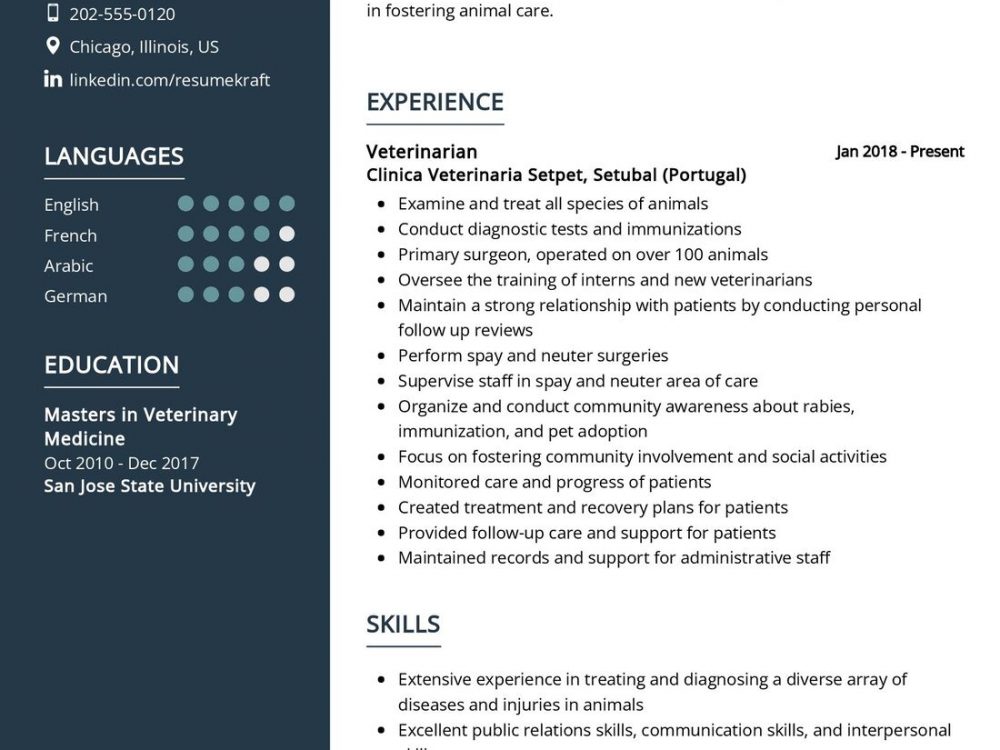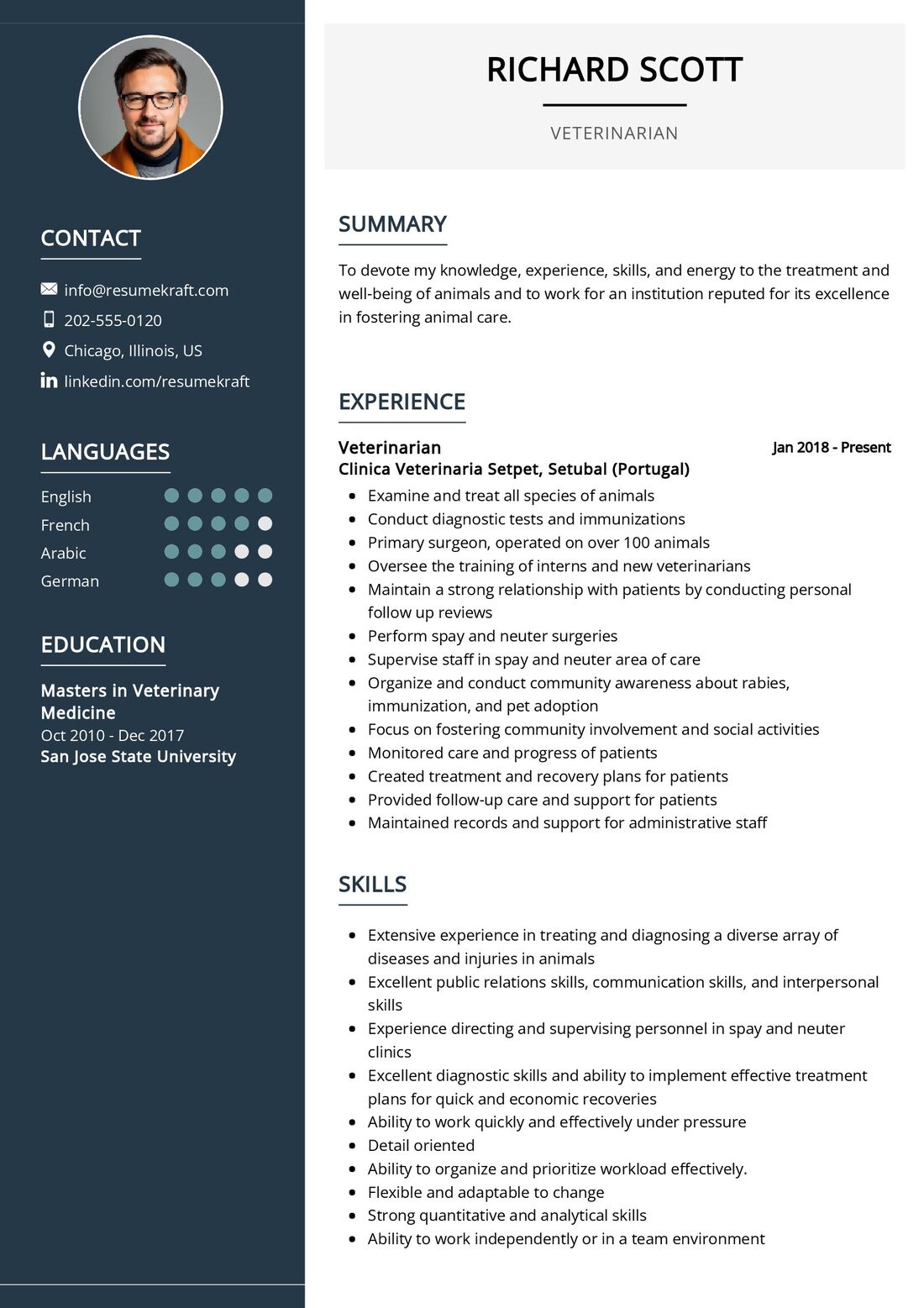What is the Role of a Veterinarian?
Embarking on a career as a veterinarian is a noble and rewarding choice, where one dedicates themselves to the well-being and healthcare of animals. The role of a veterinarian is multi-faceted, encompassing a wide range of responsibilities from diagnosing diseases to performing surgeries, and from advising pet owners on proper care to conducting research on animal health issues. Let’s delve deeper into the enriching journey of becoming a veterinarian, a role that stands at the intersection of passion for animals and medical expertise.
A veterinarian is a guardian of animal health, a role that demands a deep understanding of animal physiology, coupled with a compassionate approach towards animals and their owners. Veterinarians work in various settings including animal hospitals, clinics, research facilities, and even zoos, offering a diverse career path with opportunities to specialize in areas such as small animal practice, large animal practice, and exotic animal medicine.
What are the Veterinarian Job Requirements?
Aspiring veterinarians must meet a series of stringent requirements, a journey characterized by rigorous academic training and hands-on experience. Let’s explore the prerequisites that pave the way to a fulfilling career in veterinary medicine:
- A Doctor of Veterinary Medicine (DVM) degree from a recognized veterinary college, laying the foundation of your veterinary career with a strong academic background.
- State licensure, a mandatory requirement to practice veterinary medicine in your respective region.
- Excellent diagnostic and surgical skills, honed through years of practical training and experience.
- Strong communication skills, essential in building trust with pet owners and effectively conveying medical advice.
- Compassion and empathy, the cornerstone of a successful veterinarian career, guiding you to approach each case with sensitivity and understanding.
Additional certifications in areas such as veterinary acupuncture or animal nutrition can further enhance your profile, showcasing a commitment to continuous learning and expertise in specialized fields.
What are the Responsibilities of a Veterinarian?
The role of a veterinarian is a rich tapestry of diverse responsibilities, each day bringing new challenges and opportunities to make a difference in the lives of animals and their owners. Let’s unravel the myriad responsibilities that define this role:
- Diagnosing illnesses and injuries in animals, a critical responsibility that demands a keen eye and deep knowledge of animal physiology.
- Performing surgeries, a task that showcases your surgical prowess and steady hands.
- Administering vaccines to prevent diseases, playing a crucial role in promoting animal health and preventing outbreaks of contagious diseases.
- Advising animal owners on proper care and nutrition, a consultative role where your expertise guides owners to foster healthy lives for their pets.
- Conducting research to enhance knowledge in animal health, a scholarly pursuit that contributes to the advancement of veterinary medicine.
Each responsibility is a testament to the veterinarian’s commitment to safeguarding animal health, a role characterized by a blend of medical expertise and compassionate care.
Veterinarian Resume Writing Tips
Creating a veterinarian resume that stands out in a competitive job market is a critical step in your career journey. Here are some tips to craft a resume that effectively showcases your qualifications and experiences:
- Highlight your clinical experiences, showcasing the diverse range of cases you have handled and the skills you have honed in the process.
- Detail any research projects or publications, illustrating your contribution to the field of veterinary medicine.
- Include a section on continuous education, showcasing any additional certifications or courses undertaken to enhance your expertise.
- Personalize your resume, weaving a narrative that resonates with the specific role you are applying for.
Each tip is a stepping stone towards crafting a resume that is both authentic and compelling, a true reflection of your journey in the veterinary field.
Veterinarian Resume Summary Examples
Your resume summary is the gateway to your career story, offering a snapshot of your journey and the value you bring to the prospective employer. Here are some examples to inspire you:
- “Compassionate Veterinarian with over 8 years of experience in small animal practice, adept at diagnosing and treating a wide range of animal health issues.”
- “Dedicated Veterinarian with a proven track record in surgical procedures, bringing expertise in both emergency and routine surgeries.”
- “Veterinarian with a specialization in exotic animal medicine, bringing a unique skill set and a deep understanding of a diverse range of animal species.”
Each summary offers a glimpse into your expertise and the unique value proposition you bring to the role, setting the stage for the detailed narrative that follows in your resume.
Create a Strong Experience
Section for Your Veterinarian Resume
The experience section is the heart of your resume, a space where you detail your journey in the veterinary field. Here’s how to create a compelling experience section:
- Detail your role in animal healthcare facilities, showcasing the breadth of your experience and the impact you have made in each role.
- Highlight any leadership roles undertaken, illustrating your ability to lead teams and manage veterinary practices effectively.
- Include case studies or success stories, offering a tangible demonstration of your expertise and the positive outcomes achieved through your interventions.
Each entry in the experience section is a chapter in your career story, offering a rich insight into your journey and the skills you have acquired along the way.
Sample Education Section for Your Veterinarian Resume
Your education section is a testament to your academic journey, a path characterized by rigorous training and deep learning. Here’s a sample education section to guide you:
- Doctor of Veterinary Medicine (DVM), University of XYZ, 2015
- Bachelor of Science in Animal Biology, ABC University, 2011
- Certification in Animal Nutrition, DEF Institute, 2017
Each academic credential is a milestone in your educational journey, showcasing the strong foundation upon which your veterinary career is built.
Veterinarian Skills for Your Resume
Your skills section is a showcase of your expertise, a space where you list down the diverse range of skills that make you a competent veterinarian. Let’s explore the skills that are essential in this role:
Soft Skills:
- Empathy and compassion, the innate qualities that guide you to approach each case with sensitivity.
- Communication skills, the ability to convey complex medical information in a manner that is accessible to pet owners.
- Problem-solving abilities, the knack for finding solutions in challenging situations.
- Attention to detail, the meticulous approach to ensuring accurate diagnoses and effective treatments.
Hard Skills:
- Diagnostic skills, honed through years of experience and a deep understanding of animal physiology.
- Surgical skills, showcasing your expertise in performing a wide range of surgical procedures.
- Knowledge of animal nutrition, a skill that guides you in advising pet owners on proper nutrition for their pets.
- Research skills, showcasing your ability to contribute to the advancement of veterinary medicine through research.
Each skill is a tool in your veterinary toolkit, aiding you in providing exceptional care and making a difference in the lives of animals and their owners.
Most Common Mistakes to Avoid When Writing a Veterinarian Resume
As you craft your veterinarian resume, it is essential to steer clear of common pitfalls that can hinder your journey to landing your dream job. Here we list down the mistakes often seen in resumes and how to avoid them:
- Using a one-size-fits-all approach, a strategy that fails to showcase your unique fit for the role.
- Listing job duties without showcasing your achievements, a narrative that lacks depth.
- Ignoring the cover letter, a missed opportunity to narrate your story and connect with the potential employer.
- Overloading your resume with technical jargon, a strategy that can obscure your true value.
- Failing to proofread, a mistake that can leave a dent in your professional image.
Each mistake is a pitfall, avoid them to craft a resume that is both authentic and compelling.
Key Takeaways for Your Veterinarian Resume
As we reach the end of this comprehensive guide, let’s recap the key points to keep in mind while crafting your Veterinarian resume:
- Emphasize your clinical experiences, showcasing the diverse range of cases you have handled and the skills you have honed in the process.
- Detail any research projects or publications, illustrating your contribution to the field of veterinary medicine.
- Include a section on continuous education, showcasing any additional certifications or courses undertaken to enhance your expertise.
- Personalize your resume, weaving a narrative that resonates with the specific role you are applying for.
Finally, feel free to utilize resources like AI Resume Builder, Resume Design, Resume Samples, Resume Examples, Resume Skills, Resume Help, Resume Synonyms, and Job Responsibilities to create a standout application and prepare for the veterinarian job interview.
With this rich tapestry of insights and tips, you are now equipped to craft a resume that is a true reflection of your journey, your skills, and your aspirations. Remember, your resume is not just a document; it is a canvas where you paint your career story, a story of growth, learning, and compassionate care. Best of luck!



